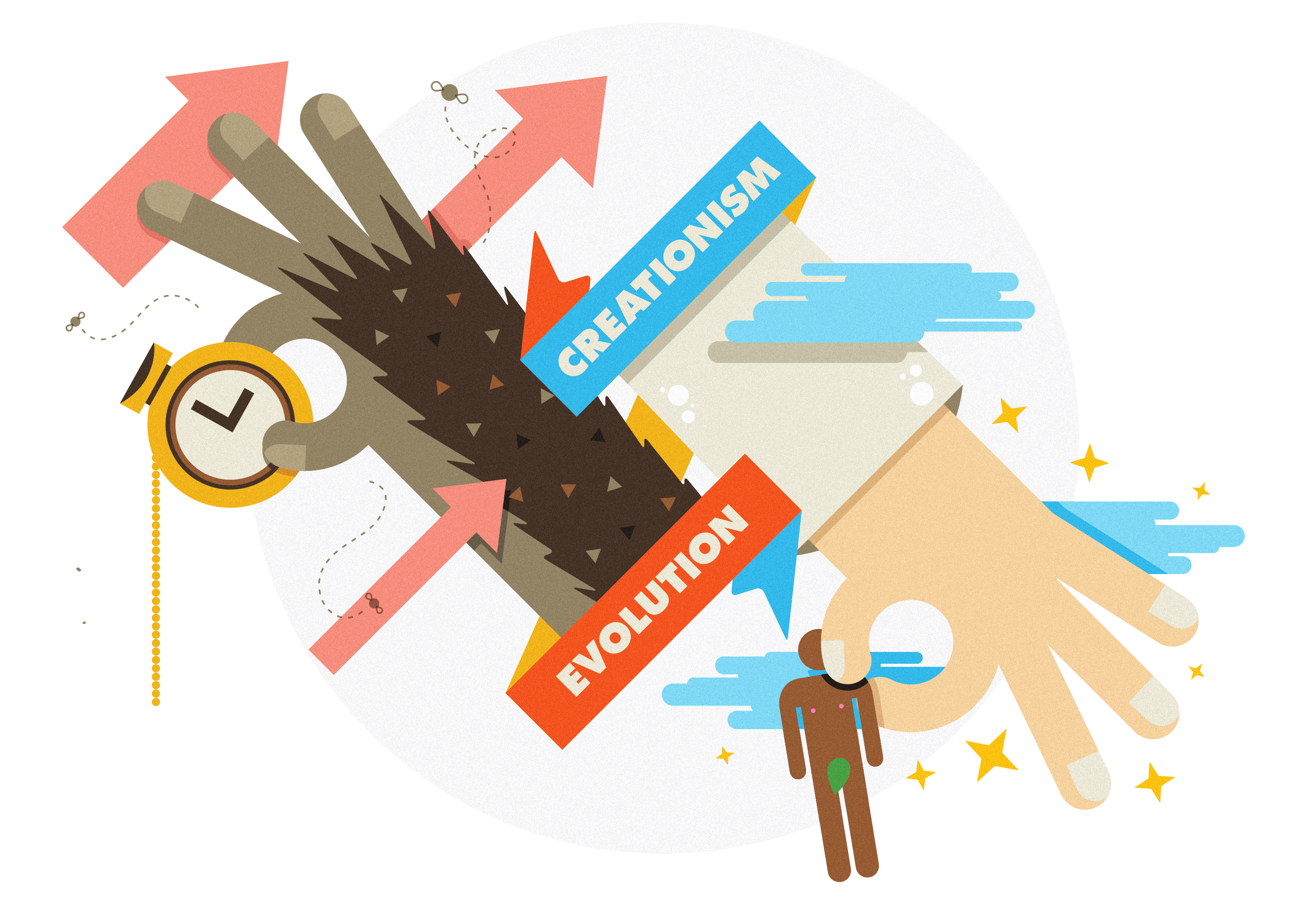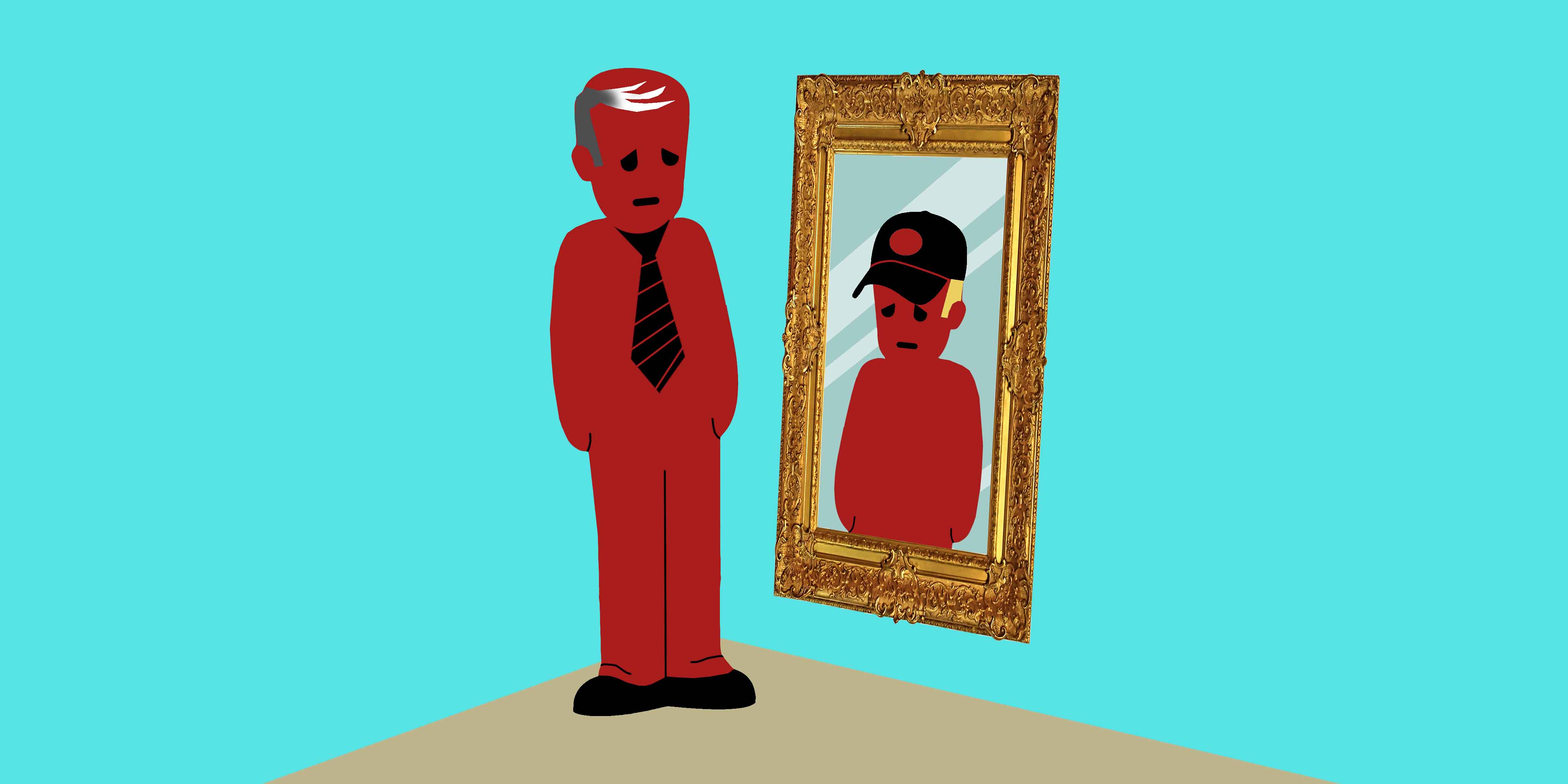Earlier this year Ken Ham challenged Bill Nye to debate on the topics of creationism and evolution as models of the origins of life. The debate took place on Feb. 4, 2014 at the Creation Museum in Petersburg, Kentucky and was streamed online to approximately three million people worldwide.
Ken Ham is a young Earth creationist who previously taught high school science. Young Earth creationism promotes the religious belief that the Earth was created less than 10,000 years ago as a result of an intelligent creator, a literal interpretation of the timeline of events presented in the Bible.
Ham is also the president of the Answers in Genesis organization. Answers in Genesis is a non-profit global organization which actively refutes ideologies of evolution. Both organizations promote creationism as the models for origins of life on Earth.
Many know Bill Nye as the host of the PBS children’s show Bill Nye the Science Guy. He is currently the executive director of the Planetary Society, an organization co-founded by astrophysicist Carl Sagan in 1980 to promote and advocate space, science, and engineering education to the public.
Nye’s book Undeniable: Evolution and the Science of Creation was published on Nov. 4 of this year, months after the debate. Nye dedicates a chapter of this book to the claims made by Ham during the debate.
Nye is strongly opposed to teaching creationism in classrooms in lieu of evolution. “I pointed out that without young people entering the science fields, especially engineering, the country will fall behind other nations who do educate their kids in real science rather than the pseudoscience of creationism.”
Approximately one-third of Americans reject evolution as a theory of origin. Around half of Canadians accept the theory of evolution.
In the United States, six out of 50 states require students to analyze important aspects of evolution, providing them the opportunity to critically think about the theory.
Creation Ministries International, a spinoff from Answers in Genesis-Australia, has a Canadian branch with a headquarters in Ontario, which is actively involved in outreach across Canada to promote their viewpoints to the public.
In Manitoba, evolution is included in the grade 12 biology curriculum, and the grade 11 topics in science curriculum. Both classes are optional science electives for high school students. The theory is not included in science curriculums for the grades prior. The province does not make alternative viewpoints on origins a mandatory classroom science topic.
Regardless of an individual’s viewpoint on creationism and evolution, Nye continues to bring the issues to the forefront of classroom science education; it is a topic he is clearly passionate about.
Ham explained his creationist approach to science during the debate with the statement, “creationists and evolutionists all have the same evidence [ . . . ] It’s not the evidences that are different. It’s a battle over the same evidence in regard to how we interpret the past. And you know why that is? Because it is really about worldviews and starting points. It is a battle over philosophical worldviews and starting points with the same evidence.”
Near the end of the debate at the Creation Museum, Bill Nye stated, “As my old professor Carl Sagan said so often, ‘When you’re in love, you want to tell the world.’ And I base my beliefs on the information and the process that we call science. It fills me with joy to make discoveries every day of things I’ve never seen before. It fills me with joy to know that we can pursue these answers. It is an astonishing thing that we are—you and I are—one of the ways the universe knows itself.”






It’s an absolute sickening disgrace that this even has to be a debate. The issue of whether biological evolution is real has long been settled. You cannot deny something that incorporates real-life applications. I don’t care if people want to have their beliefs, fine, but do not try to pass them off as science, and to be opposed of something just because of your convictions of what it states in an ancient book is the epitome of confirmation bias and not being able to critically think for yourself.
I wish more people would take your view. We need more education in our schools and critically thinking for themselves.
The question will become mute with the rapid rise of atheism.
(moot)
Science is a discipline that presupposes nothing to be true – it looks instead to rigorous examinations of evidence, through repeated testing and/or repeated findings, and conclusions that derive from the tests and findings.
In that sense, creationism is not science. It begins with the presumption that the creationist advocate’s religious scriptures are the literal truth, and then attempts to (through rhetorical devices or cherry picking) cram some scientific sounding words into the story line.
This is not to disrespect religion, of course. I am myself Catholic. But science needs to be about science. Go where the evidence leads – not try to use rhetorical legerdemain to try to fit the evidence to your pre-existing conclusion.
That is incorrect “secular science” starts with the presupposition that all things are to be explained by natural processes, that the supernatural does not exist. You being a catholic should take a bit of offence to that.
Ironic that in many fields of engineering evolutionary techniques are used to design items (ie have models that compete, make minor random changes and compete again) – used for aircraft wing design among others – odd that God isn’t allowed to utilize these evolutionary design techniques – I guess He’s stuck with T squares and dividers for all his designs.
The statistic that only six out of 50 states have the theory of evolution included in the high school curricula is the most appalling information in this article. This issue can be settled among the general public only if people are informed, and the public school system should be first and foremost about proper information. Since that is not the case, this futile debate drags on.
Many who believe in Creation would say that by calling it creationism you have already concluded its falseness without examining the scientific evidence for it. We would argue that your presupposition that there is no Creator, leads you to conclude, that the only way to interpret the evidence is to exclude Creator and choose evolution. Science is a tool, not necessarily an undeniable proof for one side or the other. The complexity of body systems and DNA make it difficult for many who believe in evolution to take it to the ultimate conclusion.